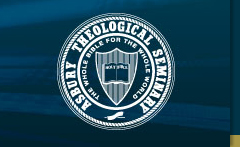Files
Download Full Text (219 KB)
Summary
Having completed this course, students should be able 1. to give a broad account of the content of the individual New Testament writings and identify resources for further study of these writings; 2. to articulate the social and historical background out of which the New Testament arose; 3. to articulate how one’s beliefs about Scripture impinge on how one engages biblical texts in interpretation; 4. to identify a range of questions (e.g., historical, literary, canonical) that might be addressed to particular New Testament texts and explore those questions in the process of interpreting particular New Testament texts 5. to identify significant, critical resources for New Testament study and deploy those sources critically in New Testament study; 6. to probe the interplay of theology and ethics in the various New Testament writers; 7. to demonstrate awareness of the significance of the original languages for understanding and interpreting the New Testament; and 8. to integrate these concerns and methodologies in a sound hermeneutical method.
Publication Date
January 2005
Publisher
Asbury Theological Seminary
Keywords
ExL, Testament, New, Fall, NT520
Language
English

